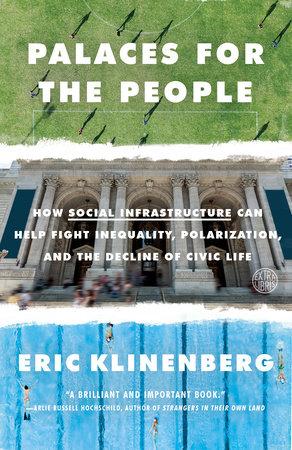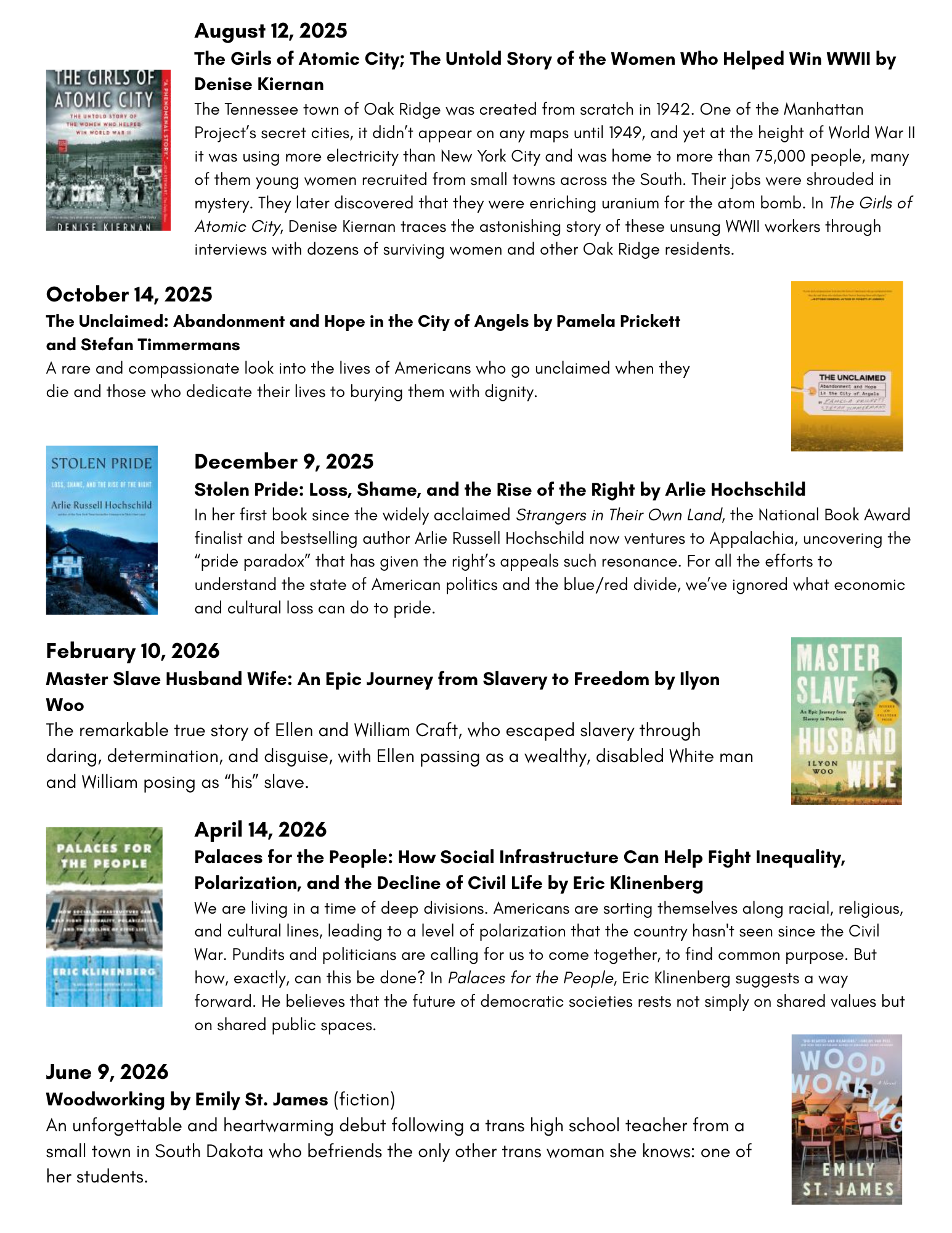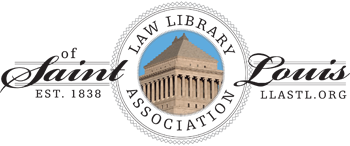
Our next selection is "Palaces for the People" by Eric Klinenberg.
The Legally Reading book club will meet virtually until further notice. Videoconference information will go out prior to each meeting to those who sign up. We meet from 12:30 PM to 1:30 PM Central Time on Zoom.
For more information, contact Library Director Gail Wechsler at 314-622-4470 or gwechsler@llastl.org.
Complete list of upcoming books and dates:
BOOKS AND DATES SELECTED FOR 2025-2026
Here are the books and dates for the remainder of the 2025-2026 year of Legally Reading:
Tuesday April 14: Palaces for the People: How Social Infrastructure Can Help Fight Inequality by Eric Klinenberg
We are living in a time of deep divisions. Americans are sorting themselves along racial, religious, and cultural lines, leading to a level of polarization that the country hasn't seen since the Civil War. In Palaces for the People, Eric Klinenberg suggests a way forward. He believes that the future of democratic societies rests not simply on shared values but on shared public spaces.
Tuesday June 9: Woodworking by Emily St. James
An unforgettable and heartwarming debut following a trans high school teacher from a small town in South Dakota who befriends the only other trans woman she knows: one of her students.
Download a book club flyer here.




